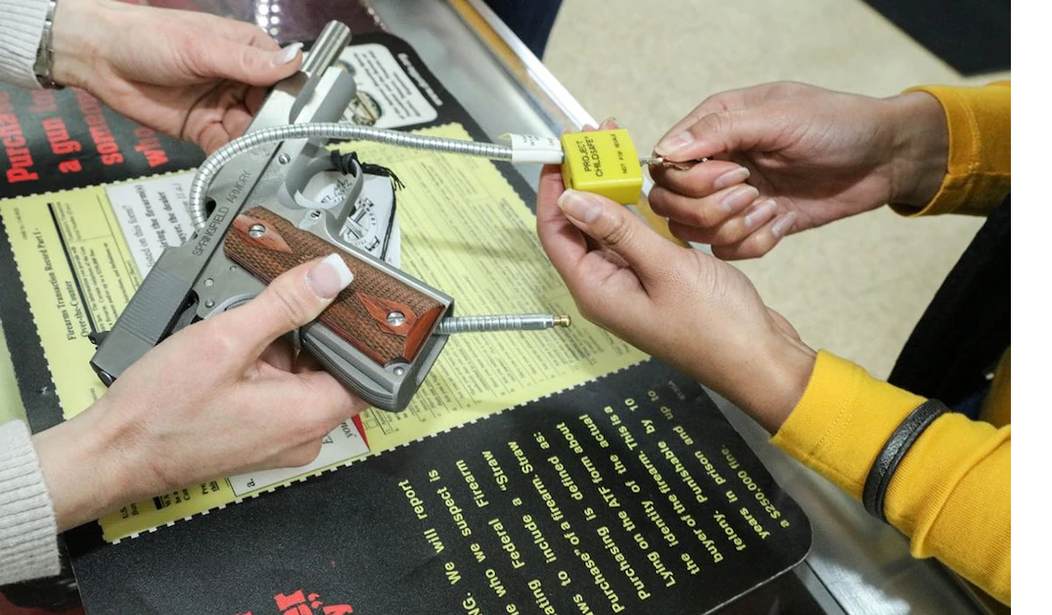It's been more than a year since Milwaukee Journal Sentinel investigative reporter John Diedrich launched his series "Behind the Gun", and he continues to produce thoughtful, relevant, and largely agenda-free reporting on gun-involved deaths in the state of Wisconsin. I've had Diedrich on Cam & Co on multiple occasions over the past twelve months to talk about things like his coverage of voluntary off-site gun storage efforts aimed at reducing suicide and a panel discussion on mental health and gun ownership that he moderated, and he'll be joining me once again on Monday to discuss his latest series for the Journal Sentinel focusing on unintentional shootings.
Tom Knighton covered one of Diedrich's stories earlier this week; a profile of two Milwaukee-area firearm instructors who offer home evaluations and safety plans as part of the training they offer gun owners. It's a great piece, but Diedrich also penned another important story that focuses on the tragedy of unintentional shootings and the disparity they receive when it comes to prosecution.
As Diedrich found out, "cases are handled differently depending on where the shooting happened." In Milwaukee County, the vast majority of individuals who face prosecution in connection with an unintentional shooting start out with felony charges, unlike the rest of the state.
Since 2017, when Wisconsin lawmakers tweaked the state's felony neglect statute to include instances of unintentional neglect, Milwaukee County Deputy District Attorney Matthew Torbenson has filed 54 cases involving an unintentional shooting of a child; 52 of them felonies and two of them misdemeanors. There were 34 cases of unintentional shootings involving a child across the rest of the state over that same time period, and 24 of them were prosecuted as misdemeanors, with only 10 defendants charged with a felony.
Laws that hold parents and others liable when children get hurt or killed in shootings are passing across the country. Wisconsin’s 1991 law and the felony neglect law, amended with Torbenson’s help, fall into that category.
Are such laws effective?
Studies have found evidence that these laws prevent unintentional shootings of children. The results have been touted by groups such as Everytown for Gun Safety, which advocates for tightening gun laws.
“We know these laws save lives,” said Alison Shih, senior counsel for Everytown.
A 2022 study, however, raises questions about that.
Matthew Miller, a doctor and professor at Northeastern and Harvard universities, said the intent behind the laws is solid: Children are safer when they cannot get to guns.
But when Miller, the study’s lead author, and his colleagues examined the data, they didn’t find the preventative effect that had been reported.
Miller told the Journal Sentinel his team found many gun owners didn’t know the laws even existed in their state. Some did know but were still keeping their guns unlocked, he added.
“I'm all for getting parents to lock up their guns and make them inaccessible to their children. That can only save lives,” Miller said. “I just don't have much confidence that as enacted these laws are getting many parents to lock up their guns.”
Whether or not these policies are effective is an open question, and their constitutionality is another issue entirely. But as Diedrich notes, there's also the issue of racial disparity when it comes to prosecutions. In Milwaukee County, he writes, "[d]efendants are typically related to the victims, most often the mother or father. The majority of defendants have no criminal record. And nearly all are Black."
While the initial charge is most often a felony in Milwaukee County, most of the cases resulted in probation or a short jail term.
In counties outside Milwaukee, where prosecutors were more likely to charge defendants with misdemeanors, the Journal Sentinel review found that the majority of defendants are white.
To a certain extent, that disparity isn’t surprising. More than 65% of the state’s Black population lives in Milwaukee County.
Because Milwaukee County prosecutors are almost always charging felonies, they are reinforcing a disparity where Black parents are more likely to be charged with a harsher crime, based purely on where they live.
Torbenson, however, shrugged off the disparity; noting that the majority of victims of unintentional shootings are also Black and adding that "he and his team consider a person’s history and whether they accept responsibility when deciding how to resolve the case, including what charges to bring".
Given the dubious efficacy and constitutionality of these storage laws generally, the decision to charge most of these cases as felonies is troubling... even to some gun control advocates.
“We want to make sure that we're not destroying someone's life in the meantime because the ultimate goal is to keep our kids safe,” said Jen Pauliukonis, director of policy and programming at Johns Hopkins Center for Gun Violence Solutions.
“We don't want a law that's going to tear down those who are already the most vulnerable to so many public health issues.”
I can't take issue with Diedrich's conclusions or recommendations because he doesn't offer any. Refreshingly, he lets his readers draw their own conclusions about storage laws, their enforcement, and their ability to convince or persuade parents of young children to keep their firearms out of reach. Diedrich's report is a conversation starter, not a monologue or anti-gun screed, and I'm looking forward to our discussion on Monday's Bearing Arms' Cam & Co.









Join the conversation as a VIP Member